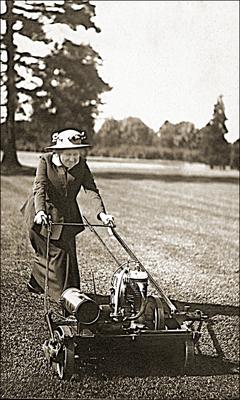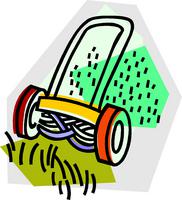 Summer has arrived, and that means barbeques, pools, fireworks and lawn care. So with all this fun going on, why should you spend extra time practicing organic lawn care? Unfortunately, while they seem like an easy fix, the synthetic fertilizers, soil treatments, and pesticides that are sold in stores are dangerous to the environment, the water supply, and to wildlife. Do you really want to pour poisonous chemicals all over the yard where your kids and your pets play?
Summer has arrived, and that means barbeques, pools, fireworks and lawn care. So with all this fun going on, why should you spend extra time practicing organic lawn care? Unfortunately, while they seem like an easy fix, the synthetic fertilizers, soil treatments, and pesticides that are sold in stores are dangerous to the environment, the water supply, and to wildlife. Do you really want to pour poisonous chemicals all over the yard where your kids and your pets play?
Furthermore, applying these products year after year creates a cycle of damage that reduces your lawn’s ability to protect and rejuvenate itself. For example, most of these chemicals are particularly toxic to birds. Fewer birds mean more harmful insects for your lawn. So then, the homeowner applies more pesticides, right? The pesticides may stop the insect problem for a while, but more insect-eating birds die, the insects become resistant to the pesticides, and next year the homeowner has an even bigger bug problem.
The good news is that going green with your lawn is really not all that time consuming, especially after the first couple of years. Organic lawn care is all about boosting the overall health of your lawn, enabling it to take care of itself. Here are a couple of steps to help you make your lawn “greener” without dipping into those chemicals you have stashed behind the garage door.

The key to a beautiful organic law is to set your mower deck high, preferably about three inches. Mowing too low weakens your grass and sets the stage for weeds to take over. Taller grass is healthier because it grows deeper roots, making it more drought resistant, and taller grass forms more seeds, for increased reproduction. You will also want to mow frequently, so that you are removing a smaller part of the grass blade. Cutting a smaller portion of the plant allows the grass to recover more quickly. Also, small clippings can be mulched rather than bagged, creating natural fertilizer for your lawn.
A second step to an organic lawn is to water less often, but really saturate the soil when you do water. Saturating the soil ensures that your grass gets water down to the deepest roots, enabling your lawn to go longer between watering, and to remain healthy even during dry weather. The weeds, on the other hand, have shallow roots that are close to the surface. Watering less often will kill many weeds because their shallow roots cannot survive dry conditions.
It really is easy to achieve a beautiful lawn without resorting to synthetic products that are harmful to our environment, not to mention our families. It will take a couple of years to get rid of all weeds without using chemicals, but an organic lawn is definitely worth your time. In the end, an organic lawn is more sustainable, and requires less maintenance, than a chemically treated lawn.
Chris Keenan is a green and general blog writer. He writes for many sites including Precision Garage Door.
Chris also maintains a personal blog at The Keenan Cookbook.

